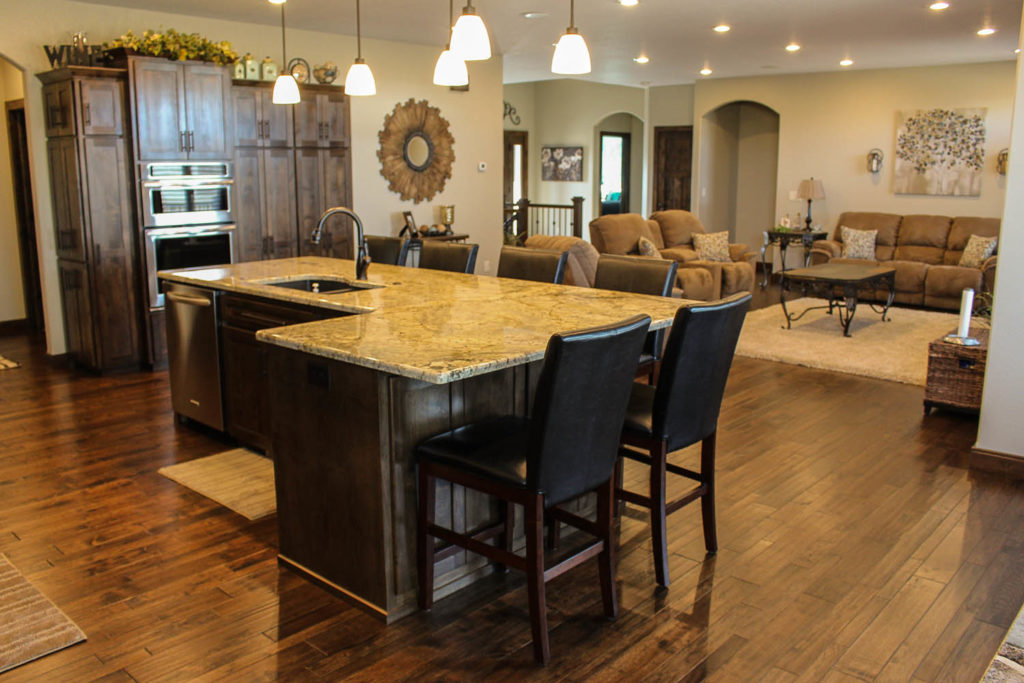The home-buying process can be an exciting time for many people. As you start to look at homes, you might be wondering
“is it cheaper to build or buy a house”?
While there are pros and cons to each decision, you might be surprised when you compare the two.
According to the National Association of Home Builders, the median price of a new home in the U.S. was $275,500 as of February 2015, while the median price of an existing home was $204,200 that same month. With home prices increasing and still-low mortgage rates, the time might be ideal for buyers to secure a deal on a new or pre-existing home. But which is the better investment?Building Your Own Home
Since new home prices are higher, your first thought might be to buy a pre-existing home. But you might be amazed at what you can afford if you decide to build your own home instead. Since builders want to keep their crews working, they offer many discounts to encourage potential buyers to build.8 Benefits of Building Your Own Home
Building a new home can come with many benefits such as:- Discounts from the builder: Since you’re working with the builder directly, you can usually negotiate several thousand dollars worth of savings, as well as determine the location of your property with a bit more freedom.
- Everything is new: Moving into an existing property can come with hidden costs, as certain aspects of the home could need significant upgrades that might not be entirely obvious during the purchasing phase.
- Annual savings: If your furnace and air conditioner are new, you can save a few hundred dollars a year by omitting the service plan normally carried with an older system. Additionally, you can tap into some homeowners insurance savings.
- Design control: Everything is what you want from the start. You won’t have to spend additional funds redoing the home after you purchase it.
- Building a community: Building a community with your new neighbors is often overlooked. Since everyone in the neighborhood is relatively new, great bonds can be formed over the years with your new neighbors.
- Easier entertaining: Entertaining is easier because new homes often have an open floor plan that supports large groups. Additionally, older buildings often have some illogical design elements, like having to walk through a bedroom to reach a communal bathroom, that newer homes won’t have.
- A clean slate: You create your home from the start and you don’t have to deal with the decorating styles of the previous owner.
- Outlets: More outlets in the right places can make daily tasks more convenient, and most older homes lack this feature.
6 Drawbacks to Building Your Own Home
Of course, not everything is perfect when you build a new home. There will be delays and things will go wrong even with the best planning. Some disadvantages to building a house include:- Time: It can take anywhere from four months to six months to build a home. This is a long time to wait and things can change while you are waiting to move.
- Limitations: You might be limited in the style of home you can build in your price range. You might also find that making a lot of changes and purchasing upgrades from the builder can be expensive.
- Construction loan and permits: You might be required to carry the construction loan on the building process if the builder does not do this for you. You will also need to understand the permit requirements in your area if the builder does not do this for you. Even if the builder handles the permits, it’s a good idea to understand what is needed to ensure everything is built up to code. If you are unsure, it is best to hire your own inspector to make sure the job is done correctly the first time.
- Legal considerations: The agreement between you and the builder might limit your rights if there is an issue with the home-building process and you need to take the builder to court. Make sure to read any documentation very carefully and consult an attorney in your state for legal advice if necessary.
- Temporary housing: You might have to move into temporary housing while you wait for your home to be built. This can mean added expenses in the form of movers and storing your items if your things won’t fit into your temporary space.
- Added stress: Moving is hard enough and doing it several times in a year can be difficult, especially if you are moving during the winter months.
Buying a House
Buying a pre-existing home is an attractive option for many people because — in most cases — you can move into the home soon after closing. Realtor Colleen Settles said one benefit people often overlook with a pre-existing home is inheriting the landscaping, curtains and window coverings, which adds up to big savings. “Most people don’t think about those expenses when they are building a new home, and they can add up quickly,” Settles said. With a pre-existing home, those things are usually already done for you.4 Benefits of Buying a House
Some additional benefits of buying a home that already exists include:- Upgrade costs can be delayed: Making upgrades on the home as you live there can help cut down on up-front costs.
- Ability to move quickly: In most cases, the buyer can move in immediately after closing. There is no wait time or temporary housing to worry about.
- You know the neighborhood: You already know your neighborhood and you don’t have to worry what type of home the person next to you might build.
- Easy to visualize: You can see the floor plan and the layout of a pre-existing home. When you build a home, it can be difficult to visualize the layout and ensure you’ll like the final product.
4 Disadvantages of Buying a Home
Disadvantages of buying a pre-existing home include:- Upgrade costs: Of course, for some people, having to move into a home and make upgrades is going to be a downside to the process because this can take time and leave you with a messy house until the project is complete.
- Potential remorse: You need to discover and get used to the quirks in the house that didn’t stand out when you were in the buying process.
- You are stuck with the layout: You can’t easily change the layout or floor plan of the home.
- Decorating costs: You might have to invest some time and money to bring the home up to current decorating standards by removing wallpaper, changing paint colors or updating flooring.


